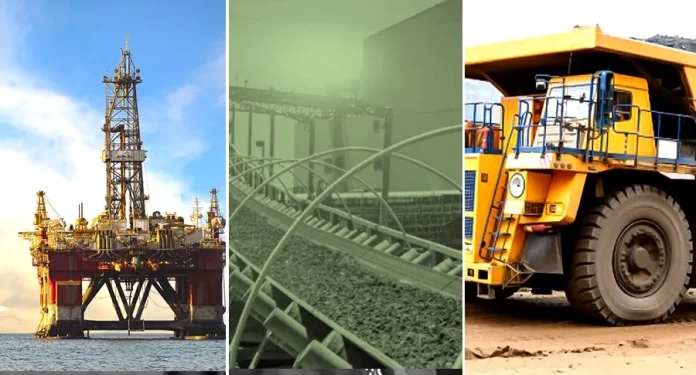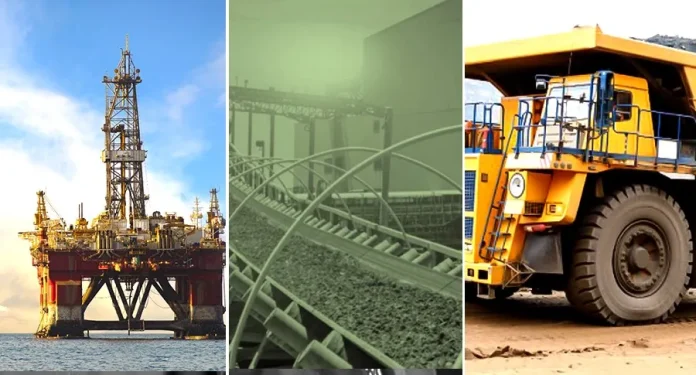
Deputy Chief of Staff Nana Oye Bampoe Addo has raised concerns about massive illicit financial flows draining Africa’s extractive industries, describing the continent as a hub for revenue losses that undermine development. She made these remarks Tuesday during the launch of the Africa Extractives Media Fellowship at the Accra International Conference Center.
Bampoe Addo stated that Africa loses over 40 billion dollars annually through secretive tax evasion, transfer pricing, and underreporting in the extractive sector, according to the Economic Commission for Africa (ECA). She emphasized that these illicit financial flows represent schools, hospitals, infrastructure, and jobs that communities miss out on across the continent.
The deputy chief of staff noted that Africa’s extractive sector accounts for nearly 70 percent of the continent’s export earnings. She questioned what tangible benefits citizens have received despite this enormous contribution to economic output. The sector contributed roughly 30 percent of Africa’s gross domestic product between 2000 and 2010, based on African Development Bank figures.
Ghana’s experience mirrors the continental pattern. The extractive sector contributed 11.3 percent of the country’s GDP and 15 percent of government revenue in 2020, Bampoe Addo revealed. The Democratic Republic of Congo derived 98 percent of exports and 46 percent of government revenue from minerals in 2021. Nigeria, Angola, and South Africa show similar heavy dependence on extractive industries.
Yet communities living closest to mines and oilfields remain among the poorest across Africa, she observed. These areas continue struggling with broken roads, under resourced schools, and stubbornly high youth unemployment despite proximity to valuable natural resources. The contrast between resource wealth and community poverty highlights governance failures in benefit distribution.
Bampoe Addo emphasized that the extractive sector also stands at the center of environmental degradation, revenue loss, and conflict. These challenges undermine the expected benefits of Africa’s resource endowments. She described responsible, fact driven journalism as becoming central to natural resource governance across the continent.
Citizens are demanding transparency and accountability in managing Africa’s natural resources, she noted. This reality has strengthened the case for vigilant, well equipped journalism and stronger institutional reforms. The deputy chief of staff said these circumstances speak directly to the relevance of the newly launched fellowship program.
The maiden Africa Extractives Media Fellowship selected 30 journalists from over 300 applicants across six African countries. Programme Lead Kwakye Afreh Nuamah explained that the six month initiative aims to transform how stories about mining, oil, and gas get told across the continent. Applications came from Ghana, South Africa, Kenya, Nigeria, Ethiopia, Zimbabwe, and Uganda.
Nuamah challenged journalists to move beyond boardrooms and policy tables, bringing community voices to the forefront of extractive industry coverage. He emphasized that people whose lives are most affected remain frequently missing from the narrative despite Africa’s rich deposits of gold, oil, gas, and green minerals.
The fellowship combines specialized training with practical mentorship and networking opportunities with government and industry stakeholders. Fellows will develop capacity in data driven reporting, sustainability, and gender sensitive journalism. Training already underway aims to ensure participants emerge as storytellers who reshape extractive sector coverage.
Australian High Commissioner to Ghana Berenice Owen Jones highlighted five decades of Australian mining investment during the launch event. She noted that more than 150 Australian mining companies operate across 30 African countries with investments exceeding 60 billion Australian dollars. Ghana hosts a substantial share of the 30 billion dollars in Australian mining investments in West Africa.
Owen Jones described the fellowship as more than just journalism training, calling it a bridge between ethical reporting and responsible resource governance. She stated that the program helps communities hold power to account and fosters peace through understanding. Through the fellowship, journalists will gain deeper insights into extractive sector issues including gender equality and sustainability.
Labour Minister Stephen Asamoah Siaw urged journalists to uphold accuracy, fairness, and balance in their reportage. He stated that Africa’s development narrative will be defined by how well the continent manages and tells the story of its resources. Every story about extractives ultimately concerns workers, job seekers, and families whose lives depend on these industries.
Bampoe Addo commended the fellowship as a model of international collaboration vital to Ghana’s democratic growth and sustainable future. She pledged that government would continue working with partners such as Australia and civil society to ensure extractive resources serve all Ghanaians and future generations.
The fellowship runs from October 2025 through April 2026, with all activities scheduled for Accra. Organizers plan to expand reach to other African countries in coming years, tapping into growing interest in ethical, solutions driven reporting. Success will be measured not just by story quality but by whether improved coverage translates into better policy debates and more equitable sharing of natural resource wealth.
